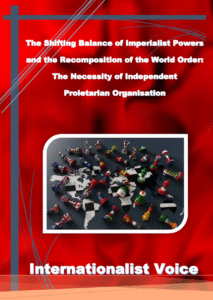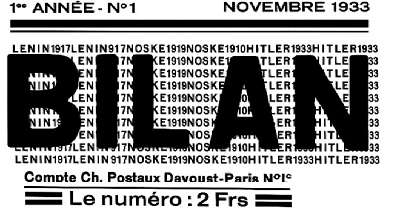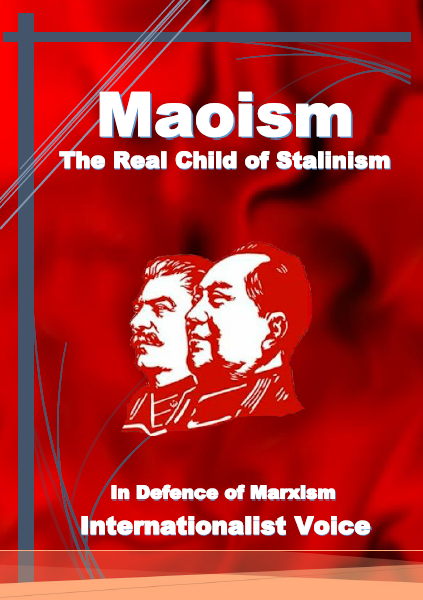The Shifting Balance of Imperialist Powers and the Recomposition of the World Order: The Necessity of Independent Proletarian Organisation
Following the Alaska meeting between the United States and Russia—a meeting that was said to be intended to bring an end to the imperialist war between Russia and Ukraine (NATO)—the Shanghai Cooperation Organisation held its summit. This summit was the largest gathering of the organisation since its establishment, with leaders from over 20 countries in attendance. During the meeting, 25 cooperation agreements were signed, and a joint statement was issued at its conclusion.
Immediately following this summit, China held its Victory Day parade—an event widely regarded as a demonstration of the country’s growing power. The ceremony echoed the Victory Day parade (9 May) in the Soviet Union, which had become a symbol of Soviet military might, with leaders reviewing the troops from atop Lenin’s Mausoleum. In Beijing, in a similar display, Xi Jinping, dressed in a Mao suit, together with other domestic leaders and foreign guests, reviewed China’s military forces from the platform above Tiananmen Gate.
With the collapse of the bipolar order and the decline of Russia’s global standing, the United States became the sole dominant world power and launched multiple wars to maintain its hegemony. Today, however, this imperialist balance is shifting: an emerging power such as China has risen, and, in other words, the world order is being rewritten.
The question now arises: does this shift in the balance of power signify the formation of new global blocs? Has the Shanghai Cooperation Organisation moved beyond the framework of security, political, and economic cooperation, and is it moving towards some kind of military-security alliance similar to NATO?
In other words, is the world on the verge of a new bloc formation, in which an Eastern bloc centred on China, accompanied by countries such as Russia, North Korea, Iran, and others, aligns against a Western bloc led by the United States? Or is the new world order following a multipolar path, with poles such as the US, Europe, and China, each holding a share of global power and influence?
If we consider the period following the end of the Cold War, the major imperialist powers did not directly engage in military confrontations with one another; rather, they pursued their rivalries and tensions through proxy wars. Meanwhile, powers such as the United States also launched direct attacks on smaller countries in pursuit of their imperialist objectives — such as the invasions of Afghanistan, Iraq, and other nations.
However, a distinguishing feature of the current situation is that the major imperialist powers are now directly involved in military tensions and rivalries, and are affected by their consequences. In a world where each power seeks to advance its own imperialist interests, and where rivalries occur not only through proxy wars but also directly and militarily between the major powers, and where alliances and convergences remain stable only as long as imperialist interests dictate, a fundamental question arises:
What kind of order are we facing? Are we, in fact, confronted with a system that could be described as one of all against all?
It is an undeniable fact that military tensions and imperialist wars are not the result of the policies of foolish leaders or dictators, but an inevitable part of capitalist existence in its period of decay. However, the fundamental difference between war in the era of imperialism and wars of earlier periods is that today, warfare is highly technological, and killing takes place on a large-scale, industrialised level.
Nevertheless, it should be noted that imperialist tensions and the balance of power represent only one side of the equation; the other side is the global working class. These global developments will undoubtedly have a profound impact on the position of this class. As economic and military competition intensifies, it is the working class that bears the heaviest burden of such conflicts—whether through poverty, unemployment, forced migration, or death on battlefields that bring it no benefit. In such circumstances, the decisive question is whether the working class will be able to overcome its current fragmentation, transcend national borders, and once again assert itself as a global historical force and as a social class in opposition to the capitalist system.
Most importantly, the fundamental question before us is: what is the role of communists at this critical historical juncture? Communists must be able to chart the path of political independence for the working class amid imperialist crises, linking the struggle against war and class oppression, and opening up an internationalist and socialist perspective to the working masses—workers who are weary of the existing system and seeking a path to liberation.
In this booklet, we will endeavour to examine these issues in light of current conditions and from an internationalist perspective. It is hoped that this work will serve as a step towards clarifying the political milieu.
Table of Contents
- Introduction
- The Emergence of the Shanghai Cooperation Organisation
- Tianjin Declaration
- The Alaska Summit
- Media War for Russia’s Return to the Global Stage
- India: A Western Tool of Influence or an Independent Imperialist Actor?
- The Expansion of Chinese and Russian Influence: A Challenge to the Western Bourgeoisie
- Demonstration of Power in Beijing
- China’s Imperialist Ambitions
- The Escalating Chaos in the Middle East
- The decline of Europe’s standing?
- The US’ Response to China’s Challenge
- Arms Race
- The Global Situation and the Necessity of the Independent Organisation of the Working Class
- Basic Positions















